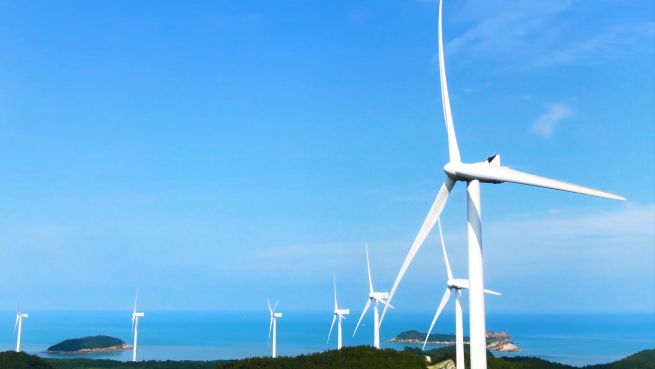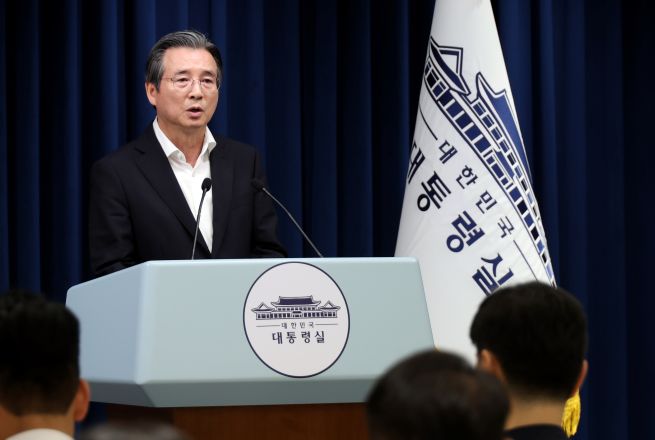
A view of the offshore wind farm located in Sinan, Jeollanam-do. (Image courtesy of South Jeolla Province)
MUAN, South Korea, July 14 (Korea Bizwire) — South Korea is pushing forward with legislation that would offer sweeping incentives — including deep electricity discounts and tax breaks — for companies operating in designated RE100 industrial zones powered entirely by renewable energy.
The move is expected to significantly bolster efforts to attract major data center investments to the southwestern region of Jeonnam, particularly the Solar City (Solaseado) project in Haenam.
According to Jeonnam provincial officials on Sunday, the presidential office announced plans on July 10 to introduce a special RE100 law and form an inter-ministerial task force led by the Ministry of Trade, Industry and Energy to draft and promote it as a top policy priority.
The proposed RE100 national industrial zones — likely to be located in renewable-rich areas such as the southwest and Ulsan — aim to create energy-resilient, regulation-free hubs for next-generation industries.
Jeonnam has welcomed the initiative, as it aligns closely with its existing plans to establish an “energy smart city” anchored by a massive AI data center cluster in Haenam. In February, U.S.-based investment firm FIR Hills committed to investing in the region to build a 3-gigawatt (GW) supercomputing hub spanning 1.2 million pyeong (approx. 4 million square meters) by 2030.
The 15 trillion-won ($11 billion) project would include hyperscale data centers, large-scale energy storage systems (ESS), and AI computing infrastructure.
However, progress has stalled over land acquisition and electricity pricing concerns, with no anchor tenants yet secured. Officials hope the proposed RE100 legislation — which includes sweeping tax relief, wage subsidies tied to hiring, and residential infrastructure for workers — will revive momentum.

Kim Yong-beom, Chief Presidential Policy Secretary, delivers a briefing on the RE100 industrial complex at a press conference held at the Presidential Office in Yongsan on July 10 (Yonhap)
President Lee Jae-myung’s call to explore a “zero-regulation” model for RE100 zones signals even greater incentives may be on the table, especially for power-hungry industries like data centers. Electricity is by far the most critical cost factor for operators, who require 24/7 power stability and large-scale cooling systems.
Under the new legislation, companies could be allowed to bypass the national utility, Korea Electric Power Corp (KEPCO), and instead procure power directly from renewable producers, potentially slashing costs. This local generation-local consumption model (지산지소) could also alleviate grid congestion issues.
Currently, South Korea’s industrial electricity rate stands at 183 won per kilowatt-hour. Jeonnam officials estimate that even a 20% discount would significantly boost global interest, noting that a reduction of just 10 won per kWh could make a decisive difference.
“A 10-won discount per kilowatt-hour can be a game changer for companies operating data centers,” said a Jeonnam official. “If bold incentives and regulatory relief are implemented, the Solar City AI cluster could gain critical investment traction.”
M. H. Lee (mhlee@koreabizwire.com)
